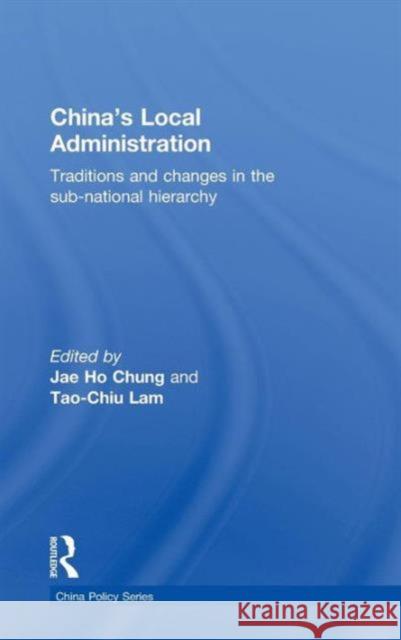China's Local Administration: Traditions and Changes in the Sub-National Hierarchy » książka
China's Local Administration: Traditions and Changes in the Sub-National Hierarchy
ISBN-13: 9780415547888 / Angielski / Twarda / 2009 / 226 str.
China's Local Administration: Traditions and Changes in the Sub-National Hierarchy
ISBN-13: 9780415547888 / Angielski / Twarda / 2009 / 226 str.
(netto: 699,68 VAT: 5%)
Najniższa cena z 30 dni: 705,23
ok. 22 dni roboczych.
Darmowa dostawa!
The remarkable changes in China over the past three decades are mostly considered at the national level, whereas local government - which has played and continues to play a key role in these developments - is often overlooked. The themes of China's local administrative hierarchy, and its historical evolution, have until now received scant attention; this book fills that gap, and presents a comprehensive survey of China's local administration, from the province down to the township. It examines the political and functional definitions and historical origins of the nine local administrative levels or categories in contemporary China: the province, the centrally-administered municipality, the ethnic minority autonomous region, the special administrative region, the deputy-provincial city, the prefecture, the county, township and urban district. It investigates how each of the different levels of China's local administration has developed historically, both before and after 1949; and it explores the functions, political and economic, that the different levels and units carry out, and how their relationships with superior and subordinate units have evolved over time. It also discusses how far the post-Mao reforms have affected local administration, and how the local administrative hierarchy is likely to develop going forward.
The remarkable changes in many aspects of China in recent years are often considered at the national level, and local government, which has played and which continues to play a key role in these developments, is often overlooked. This book presents a comprehensive survey of China’s local administration. It considers all kinds of local government units, ranging from the provinces, centrally-administered municipalities and autonomous regions to prefectures, counties, townships and urban districts. It examines how each of the different levels of China’s local administration has developed over time, both before and after 1949. It explores the functions, political and economic, that the different levels and units carry out, and how their relationships with superior and subordinate units have evolved over time. It discusses how far the post-Mao reforms have affected local administration, and how local administration is likely to develop going forward.











